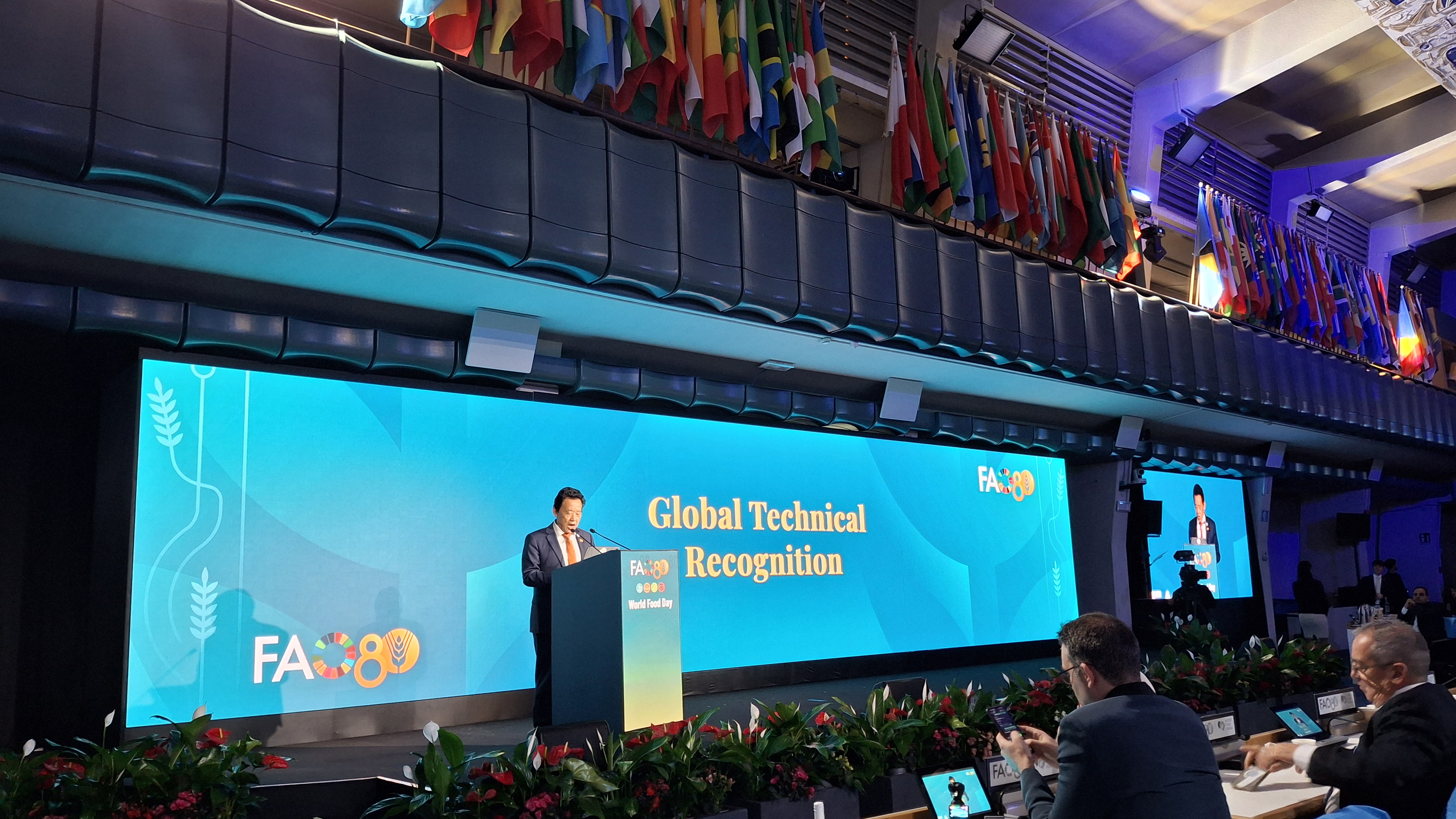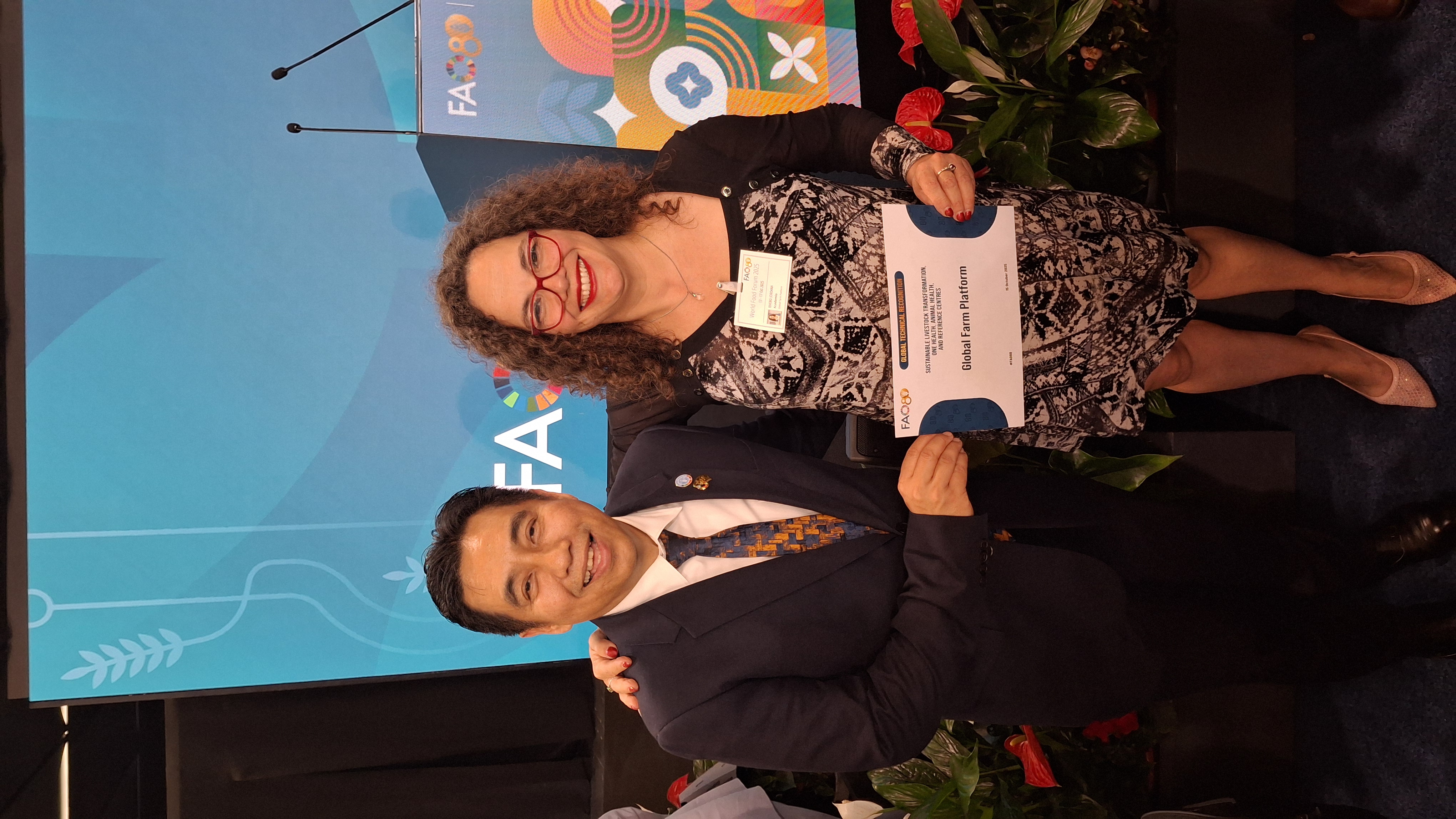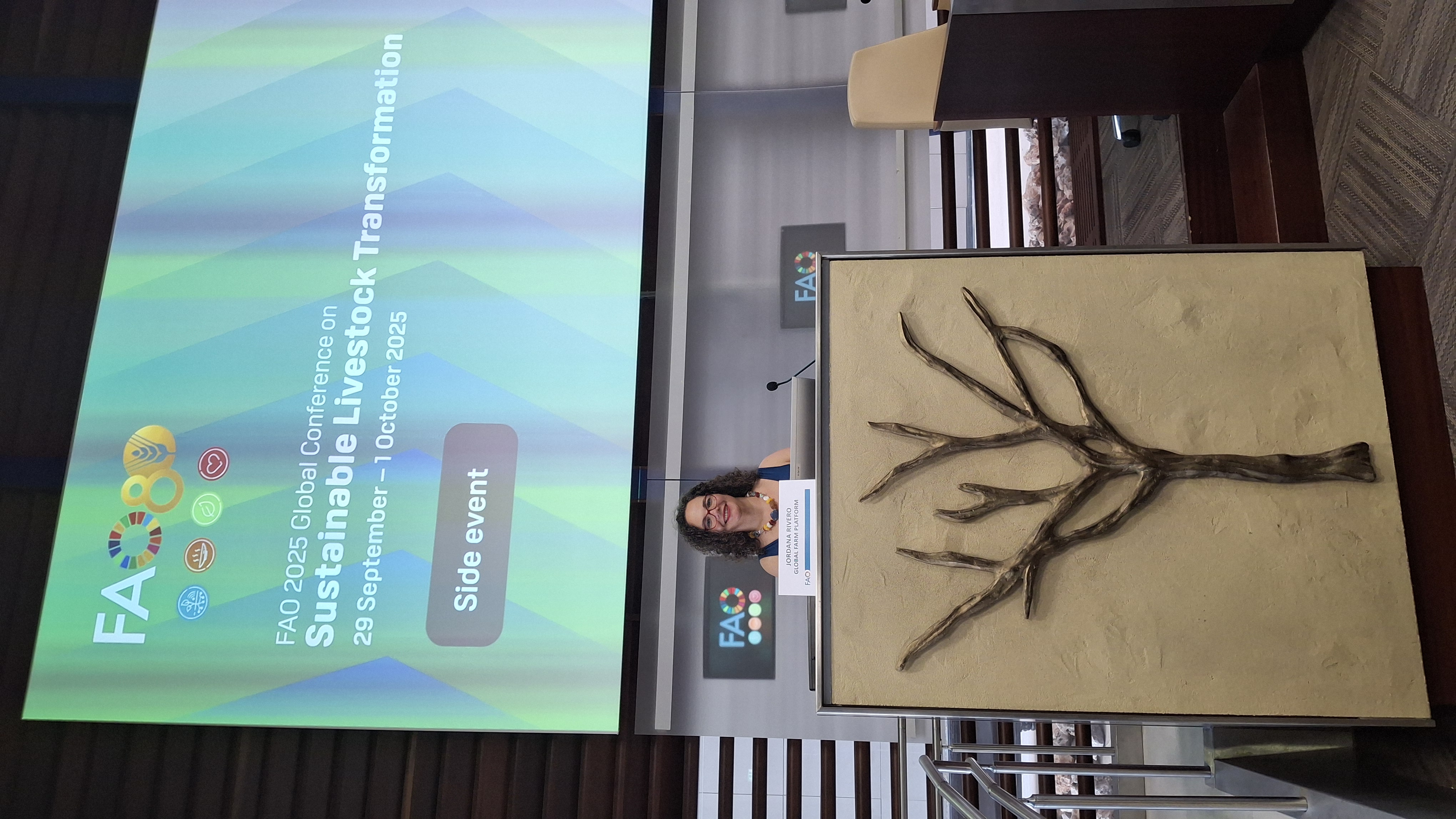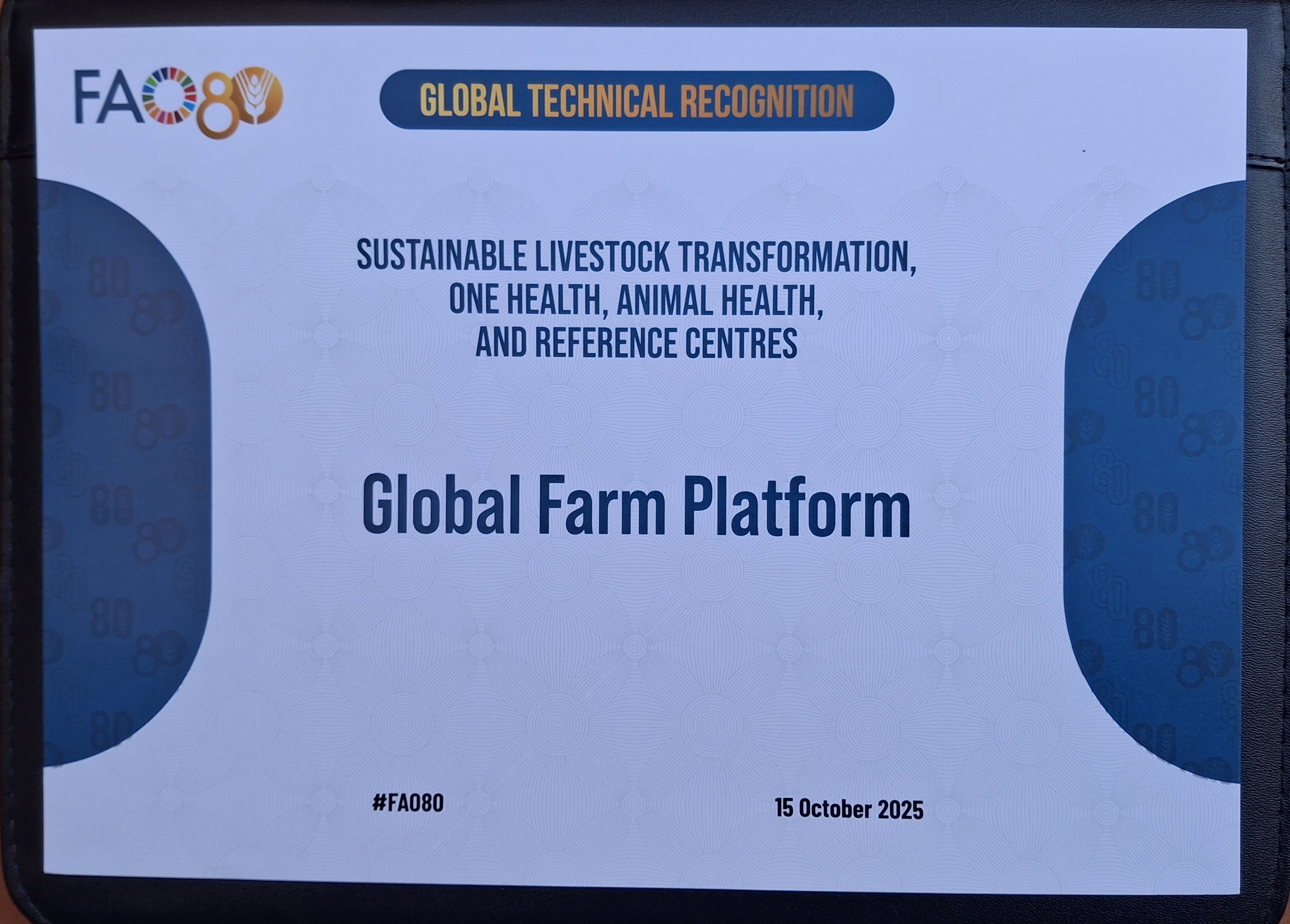News
- AgriFood Matters Podcast Series
- Recent News 2022
- Recent News 2023
- Recent News 2024
- Recent News 2025
- Ancient DNA analyses bring to life the 11,000-year intertwined genomic history of sheep and humans
- €1 million state-of-the art dairy calf rearing centre opens at UCD Lyons Farm.
- The School of Agriculture & Food Science is seeking to recruit three early-career faculty through the Ad Astra Fellows programme
- Stephen Robb - his advice to students; make sure you always keep an Ear to the Ground!
- UCD Agriculture, Food Science & Human Nutrition Careers Day 2025
- Greater than the sum of their parts
- Niamh Bambrick - Alumni Focus
- Proud day at UCD Awards Day
- Farm Walk and Talk 2025
- Minister Heydon presents Women in Agriculture Studies Excellence Award
- Development of a Hybrid Human-AI personalised learning path for VET for innovation in agriculture
- UCD welcomes New Zealand Ambassador to Ireland, Mr Trevor Mallard
- UCD Teagasc Knowledge Transfer Funded Masters 2025
- Champions for Safety
- John Roche announced as Chief Science Advisor.
- Sinead Flannery receives the UCD Values in Action Award
- UCD & Macra Agricultural Skillnet - MSc Agricultural Extention and Innovation
- Horticulture position
- UCD Student in full Bloom!
- "Communicating Irish Agri-Food to the World."
- UCD Summer Schools 2025
- UCD Plant Health for Inspectors graduates it’s first students
- UCD Students PWE
- University College Dublin rises to 118 in latest QS World University Rankings
- MSc in Humanitarian Action Students’ Visit Schedule to Wolaita, Ethiopia
- Remembering Dan Browne
- 11th CITES European Regional Plants Meeting at UCD
- From Dublin to London and Back to UCD: A Full Circle Journey in One Health
- UCD Student is awarded the 2025 Communications and Agri-Innovation Award sponsored by the Guild of Agricultural Journalists.
- 'Farmageddon' comes to UCD
- UCD Confers Michael Berkery with an Honorary Doctorate of Science
- Dr. Kevin Daly receives over €1.5million ERC Starting Grant for groundbreaking research project
- UCD goes Ploughing 2025
- Minister Noel Grealish Visits UCD Lyons Farm to Review Innovation in Agriculture and Food Science Research
- BiOrbic, leading the drive for the bioeconomy to be the cornerstone of the Irish economy.
- James Duggan is awarded Graduate Sports Scholarship
- Global Farm Platform honoured with FAO Technical Recognition for Sustainable Livestock Transformation
- COALESCE funding for research exploring how AI can assist care-plan design for survivors of gender based violence
- Mark O'Dowd - Finding solutions through technology for customers and their cattle.
- School Awards Ceremony 2025
- UCD School Awards 2025
Global Farm Platform honoured with FAO Technical Recognition for Sustainable Livestock Transformation

Rome, Italy - The Global Farm Platform (GFP), a pioneering collaborative network of 19 research farms and 28 institutions across six continents, has been awarded the prestigious Technical Recognition by the Food and Agriculture Organization of the United Nations (FAO) in Sustainable Livestock Transformation, One Health, Animal Health, and Reference Centres. The award was presented during the FAO Global Technical Recognition Ceremony on 15 October 2025, at FAO Headquarters in Rome, Italy, as part of the organisation’s 80th anniversary celebration and the World Food Forum.
The ceremony recognised GFP’s innovative hub-and-spoke approach, which connects cutting-edge research with real-world farming practices to advance global food security, sustainable development, and agrifood systems transformation. This award follows GFP’s impactful presentation at the FAO 2025 Global Conference on Sustainable Livestock Transformation on 1 October, delivered by GFP Chair, Dr Jordana Rivero (Promar International and Rothamsted Research, UK), highlighting the platform’s transformative contributions to sustainable ruminant farming.
A hub-and-spoke model for global impact
Launched in 2014, with the Nature paper ‘(opens in a new window)Steps to Sustainable Livestock’, the GFP exemplifies technical leadership and collaboration through its unique hub-and-spoke model. Research farms (hubs) serve as regional centres for experimentation and demonstration, while commercial farms and smallholders (spokes) adopt and disseminate locally relevant, economically viable, and environmentally sustainable practices. This model ensures scalable solutions tailored to diverse farming communities worldwide, from for example tropical smallholder systems in Malawi to temperate pasture farms in the UK and Ireland.
In Malawi, the Small-Scale Livestock and Livelihoods Programme has increased smallholder farmer incomes by 30–50% through community goat auctions and the use of dual-purpose crops. In Uruguay, the Palo a Pique initiative is improving soil fertility and productivity through no-tillage practices and pasture–crop rotations. In Ireland, the UCD Lyons Farm Long-term Grazing Platform (LTGP) is developing and validating a comprehensive, data-driven approach to future-proof the sustainability of pasture-based farming. By integrating research on water quality, greenhouse gas emissions, carbon sequestration, biodiversity, soil health, and animal productivity, the LTGP aims to identify practical pathways toward net-zero, resilient, and efficient grassland agriculture. Together, these initiatives demonstrate how science-based farming can deliver measurable economic, social, and environmental benefits for a more sustainable global food system. These efforts align with FAO’s four betters - better production, better nutrition, a better environment, and a better life - and the 2025 World Food Day theme, “Hand in hand for better foods and a better future.”
Significance of the recognition
“This FAO recognition reinforces the Global Farm Platform’s role as a global leader in sustainable livestock transformation,” said Jordana Rivero. “Our hub-and-spoke model fosters collaboration across continents, empowering farmers, researchers, and policymakers with innovative, scalable solutions that tackle climate change, biodiversity loss, and food security whilst advancing One Health principles.”
Prof. Tommy Boland and Dr. Alan Kelly, UCD School of Agriculture and Food Science commented “Membership of the Global Farm Platform facilitates international knowledge exchange, practice change and innovation. While facing many similar challenges globally, solutions in many instances need to be fined-tuned for local success. UCD Lyons Farms unique research infrastructure supports the development of sustainable livestock production systems and farmer uptake of same.
Milestone for sustainable agrifood systems
The FAO recognition and conference presentation highlight GFP’s mission to bridge science and practice, delivering context-specific solutions that support the UN Sustainable Development Goals, particularly #4 (Quality Education), #13 (Climate Action), and #15 (Life on Land). With over £4 million in funding and a network spanning from India’s Silent Valley smallholder dairy systems in tropical humid environments to Ireland’s innovative approaches securing the long-term future of temperate pasture-based farming and resilient grassland ecosystems, this network showcases diverse global solutions for sustainable livestock production.
GFP continues to drive transformative change in ruminant farming, benefiting farmers, ecosystems, and communities worldwide. Over the last almost 12 years, we’ve executed over 15 projects and conducted 35 international workshops. These activities have allowed us to support 15 internships for mainly early career researchers from a variety of countries such as Uruguay, China, Nigeria, Iran, India, Brazil, and Ghana. We are currently contributing to the Marshal Papworth programme, working with international students from Africa and Asia. We’ve also published nearly 200 scientific articles, reporting our collaborative work around the globe. For more information about the Global Farm Platform and its initiatives, visit (opens in a new window)www.globalfarmplatform.org.



 (2).jpg)